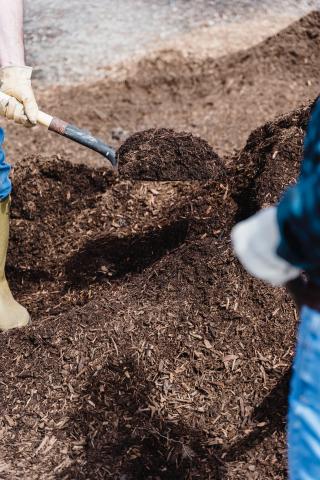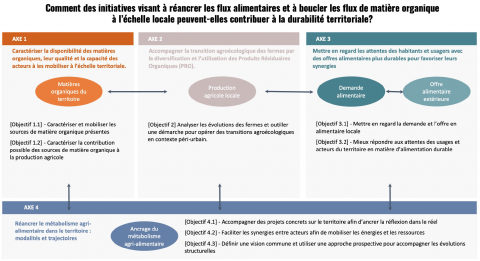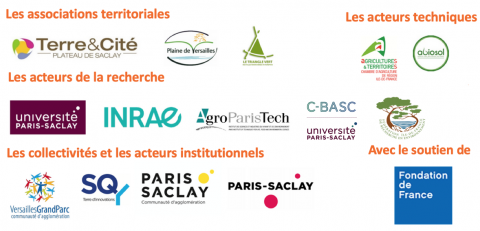
Re-anchoring food flows and looping organic matter (compost...) flows on a territorial scale
The continuous extension of the metropolis leads the small and still functional agricultural regions of southwestern Ile-de-France (Plaine de Versailles, Plateau de Saclay, Triangle Vert) to legitimize the preservation of their agricultural and natural spaces by their capacity to contribute to territorial sustainability (local food supplies, quality of life, recycling of organic matter flows). A transition has begun from the globalized cereal-based agricultural system in Ile-de-France - in which they excel - to a more diversified agri-food system whose metabolism could be much more strongly anchored to the territory, as shown by the prospective territorial ecology approaches we conducted in 2016.
For the looping of organic matter flows, the diversification of farms and the development of local food supplies that result from it to have a truly significant impact on territorial metabolism, they must be the subject of a shared project. Local actors must be involved in its realization in order to remove the obstacles to the development of these new sectors. In a context of increasing environmental upheaval, we intend to define how initiatives aiming at re-integrating food flows and looping organic matter flows at the local scale can contribute to territorial sustainability.

This project (2021-2023) is financed by the Fondation de France, the Programme d'Investissement d'Avenir of the Sésame project, the Etablissement publique d'aménagement Paris-Saclay and 3 Communities of Agglomeration: Saint-Quentin-en-Yvelines, Versailles Grand Parc, Paris-Saclay. It is the first project of the Living Lab, a multi-actor platform in which C-BASC participates. It therefor associates a diversity of partners mentioned below. Concerning research, there are 2 laboratories of C-BASC, 2 Graduate Schools (Biosphera and Sociology & Political Science) and 2 other universities. The research team is composed of Marianne Cerf, Romain Melot, Kevin Morel, Caroline Petit (SADAPT, INRAE), Enrique Barriuso, Sabine Houot, Florent Levavasseur (ECOSYS, INRAE), Sabine Barles (Université Paris 1) and Gille Billen (UPMC, CNRS).
